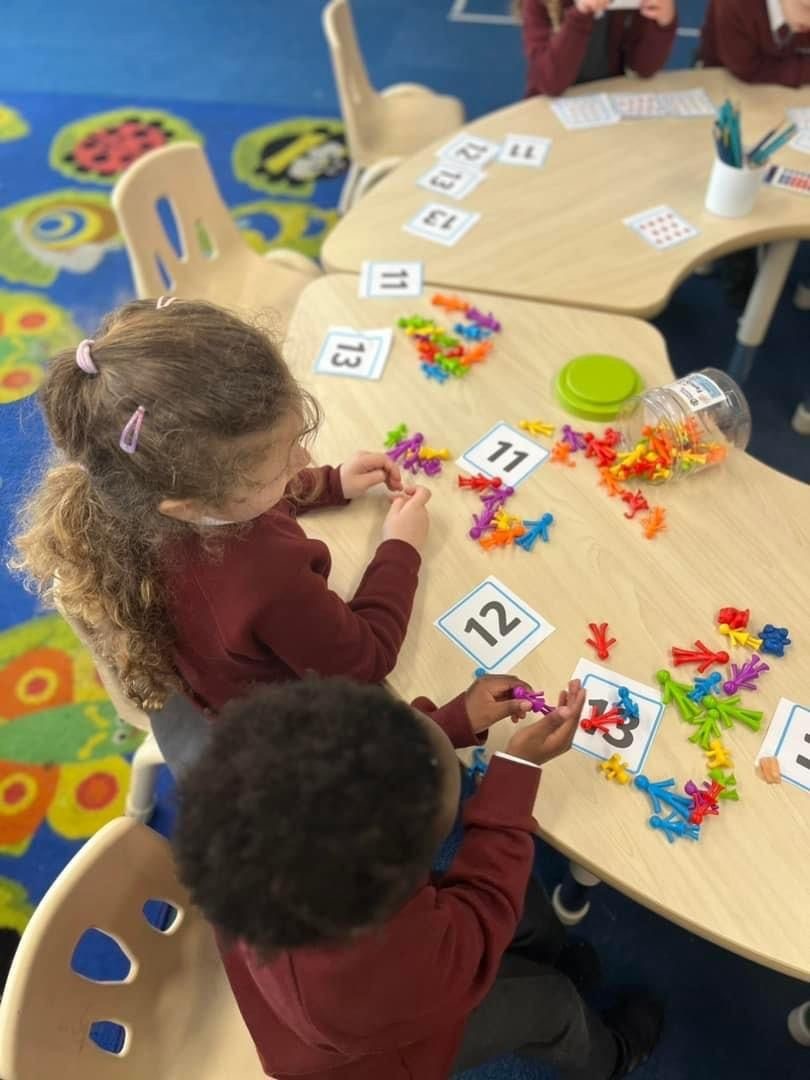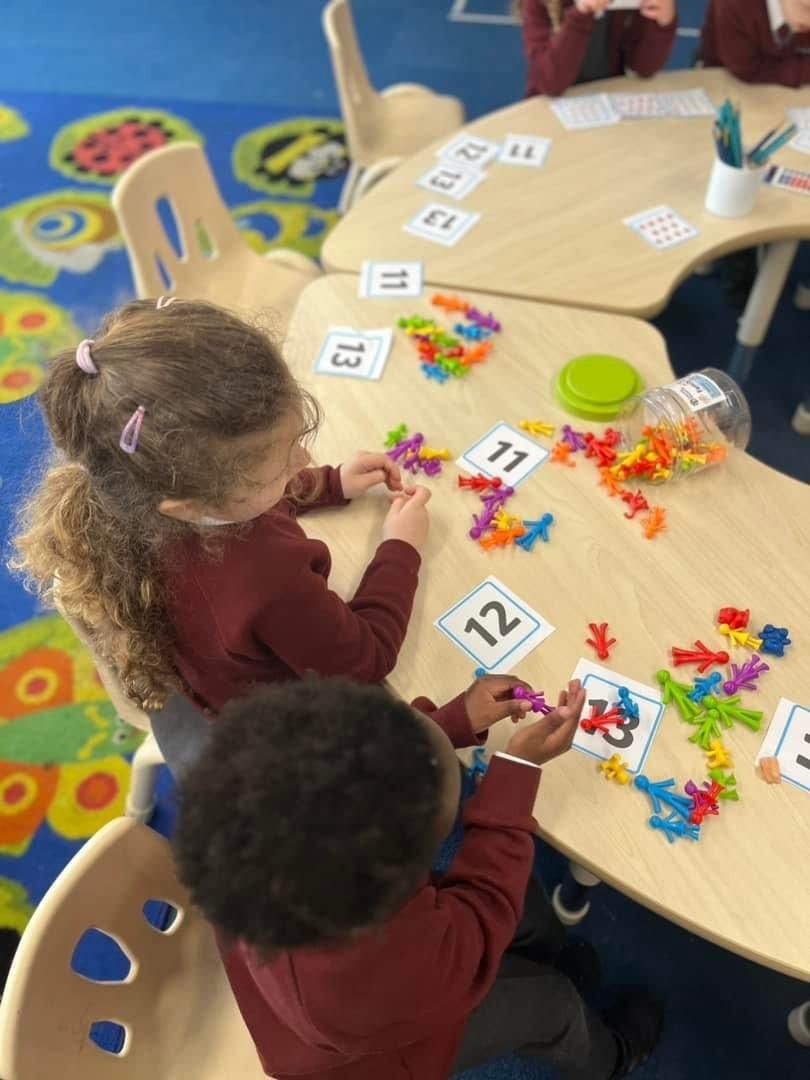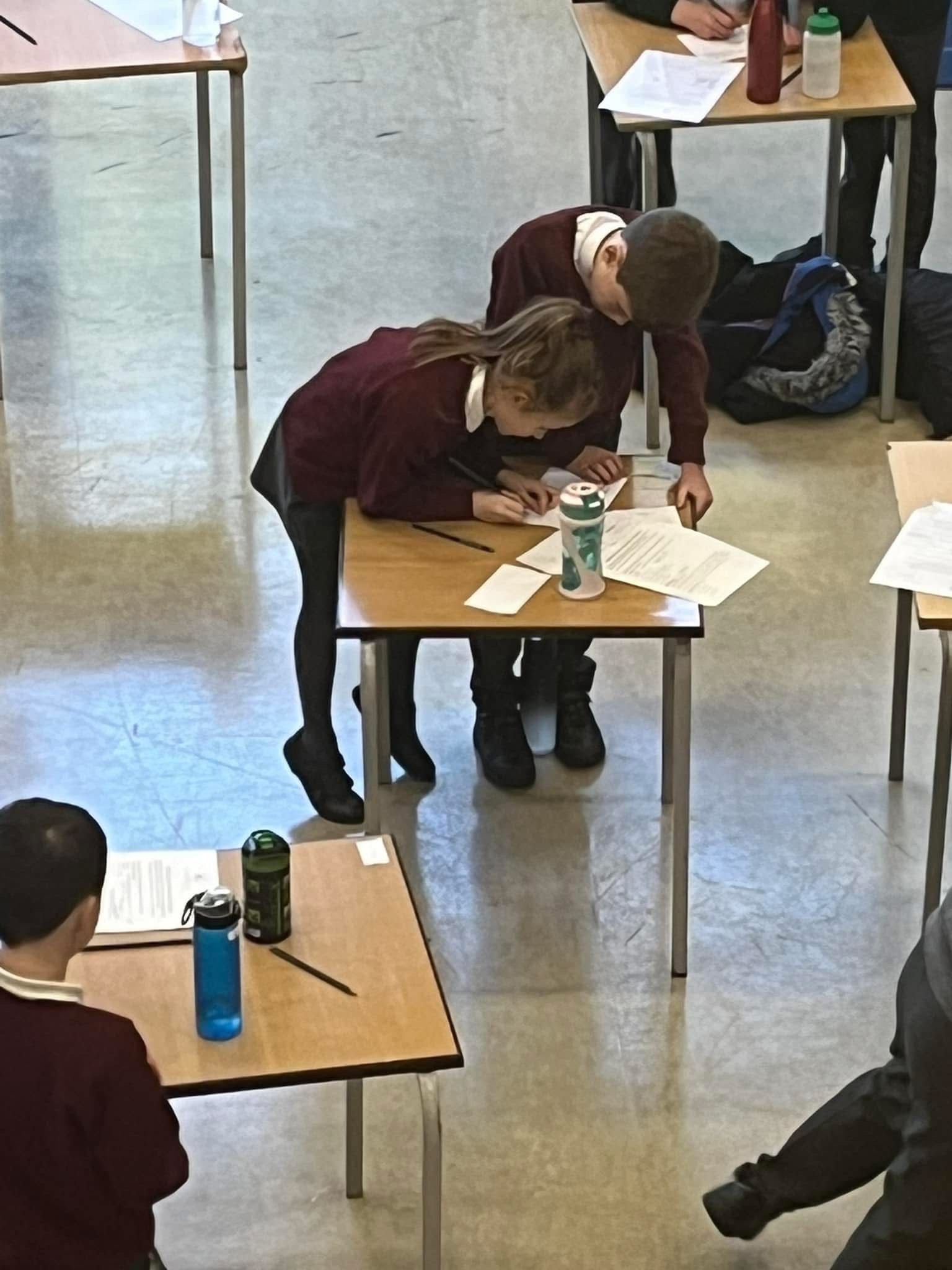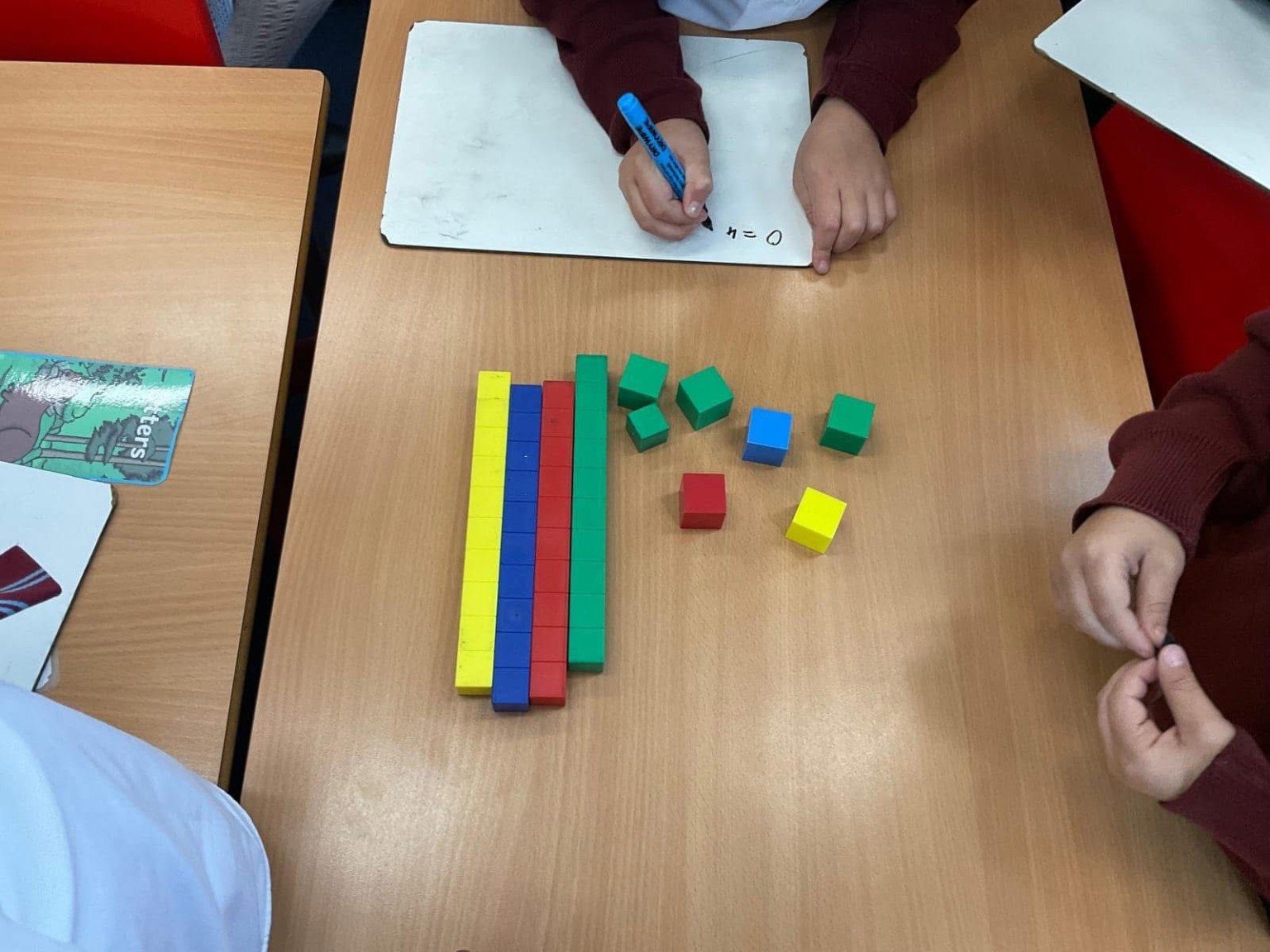Intent
At St. Michael’s CE Primary School, we make Mathematics exciting, enjoyable and stimulating. We provide high quality Mathematics teaching, which is engaging, interactive and builds upon children’s prior learning. Fluency in Mathematics is a journey and long-term goal, achieved through exploration, clarification, practice and application over time. At each stage of learning, children should be able to demonstrate a deep, conceptual understanding of the topic, forming the foundation for their next stage of learning. Mathematics is important in everyday life and this is demonstrated by giving children the ability to solve real life problems, to reason, to think logically and to work systematically and accurately.
As a school, we have invested in the White Rose Maths Scheme. Every resource has been carefully designed to ensure it addresses the three key aims of fluency, reasoning and problem solving and follows the principles of teaching for mastery. It is designed to support pupils to be able to perform simpler tasks so they can then move on to perform more complex tasks. This provides pupils with a deep understanding of the subject through a concrete, pictorial and abstract approach and ensures pupils fully understand what they are learning. By adopting this mastery approach, it is intended that all children, regardless of their starting point, will maximise their academic achievement and leave St. Michael’s CE Primary School with an appreciation and enthusiasm for Maths, resulting in a lifelong positive relationship with number. We intend for our pupils to be able to apply their mathematical knowledge to science and other subjects. We want our children to know that maths is essential to everyday life and that our children are confident mathematicians who are not afraid to take risks.
Implementation
We implement our approach through high quality teaching, delivering appropriately challenging work for all individuals. Our Maths Curriculum is carefully mapped out in our progression document and ensures that the transition between phases is smooth. Maths is planned in all classes from EYFS up to Year 6 using the White Rose long-term and medium-term scheme of learning as a basis. Learning is organised into units which have been sequenced to ensure consolidation and the opportunity for progression. White Rose is designed to support a mastery approach to teaching and learning, with the aims and objectives following the National Curriculum. Our approach ensures progression whilst also valuing a teacher’s professional judgement allowing the flexibility to decide on how long to spend on each step, which models to use and also which additional resources to use to supplement teaching. These include activities and resources from, but not exclusively, Twinkl, Oak Academy and Nrich, to extend opportunities for problem solving and reasoning. KS1 classes use White Rose Fluency Bee to support their teaching of key mathematical foundations in number.
To support our teaching and learning, we have a range of mathematical resources in classrooms including Numicon, multilink, Base10, tens frames and counters (concrete equipment). When children have grasped a concept using concrete equipment, images and diagrams are used (pictorial) prior to moving to abstract questions. Abstract maths relies on the children understanding a concept thoroughly and being able to use their knowledge and understanding to answer and solve maths without equipment or images.
In each classroom, you would see a ‘Maths Working Wall’ display which is a place to support current and future learning in Maths, and also celebrate current examples of pupil's work. The working wall is purposeful, helpful, relevant and above all useful. Developing maths vocabulary is such an important part of our Mathematics teaching. Having the vocabulary on display on the working wall and constantly referring to it helps the children to both remember and use it.
At St. Michael’s:
· Our Maths lessons are designed with a concrete, pictorial and abstract (CPA) approach, providing our pupils with the scaffolding required to access learning at all levels.
· All classes complete Maths Meetings or daily fluency practice (e.g. arithmetic) which enables key concepts and learning to be revisited and reinforced.
· We use prior knowledge as a starting point for all future planning and teaching.
· To implement our intent, we ensure that our children are invested in their learning and are making a positive contribution to their lessons.
· White Rose challenge cards are actively used in all classrooms to continue to extend pupils understanding of the topic that they are learning.
· Homework is provided to children using White Rose resources. Year 1 and 2 children will receive a White Rose task at the end of a unit. Children in Year 3-6, have a White Rose Pratice Journal. Each week their class teacher will direct them to which pages to complete within this workbook. Year 1-3 children have access to NumBots to supplement their mathematical learning at home. This is a website platform that allows children to develop their understanding, recall and fluency in mental addition and subtraction. From Year 2, children will also be introducted to Times Tables Rockstars to support their rapid recall of times tables. This is then regularly used in Year 3 – Year 6.
Assessment and Feedback
- regular teacher assessment informs the teaching and learning sequence.
- Children who are not making the required progress are given extra support through targeted interventions and support in class. These are for a short period of time and are monitored.
- Feedback is given on children’s learning in line with our marking and feedback policy.
- Formative assessment within every lesson helps teachers to identify the children who need more support to achieve the intended outcome and who are ready for greater stretch and challenge through planned questioning or additional activities.
- In order to support teacher judgments, children are assessed using White Rose assessments in Y1-5 and in Year 6, past SATS papers. Analysis of any assessments that the children complete is undertaken and fed into the teacher’s future planning.
Impact
By the end of their time at St Michael’s, we aim for children to enjoy maths and be risk-taking, curious problem-solvers with a solid understanding of mathematical concepts. To monitor the impact of our mathematics curriculum, we use the approaches outlined below.
- Pupil and Teacher Voice: through discussion and feedback, children and teachers will have the opportunity to talk about Maths teaching and learning. These will take place at regular intervals across the school year.
- Assessment and outcomes: at the each term, assessments in all year groups help to inform final outcomes every term and for the end of the academic year. Year 1 – 5 complete White Rose assessments and Year 6 complete the Year 6 SATS statutory assessments. These assessments are used to inform overall teacher judgements. Judgements are recorded on O Track regularly by the class teacher. Year 4 complete the statutory end of year multiplication check.
- Drop in/leaning walks: observations enable monitoring of the use of the White Rose scheme of learning, the learning process from whole class input, adult led activities and the opportunities provided to support and extend learning. These happen on a formal and informal basis throughout the year.
- Book looks: these are used to see progress across a unit of work, to see to ensure that assessments are accurate and reflect deep and secure understanding of the children.





